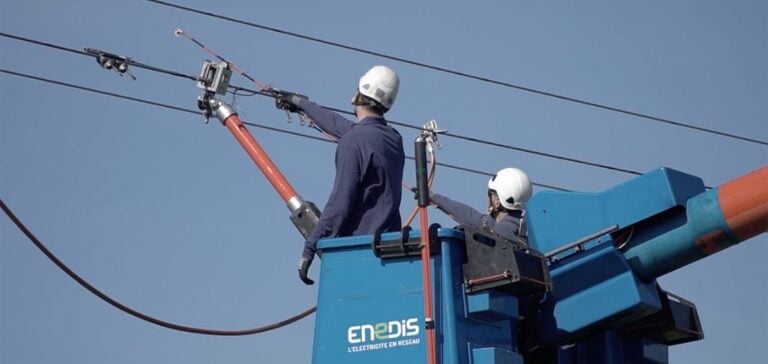The increase in extreme weather events calls for rapid, effective responses.
Enedis and RTE, the main operators in France, are making substantial investments to reinforce their infrastructures.
Enedis devotes almost 1 billion euros a year to modernization, with an overall investment plan of 96 billion by 2040, aimed at improving the resilience of the network.
RTE, for its part, is adapting its infrastructure to withstand increasingly severe weather conditions, with projects to reinforce lines and install more resistant towers.
Increasing number of storms and heat waves
Increasing numbers of storms and heat waves call for a strategic reassessment.
In 2023, Enedis has identified a record number of 21 major climatic events, underlining the urgent need to reinforce networks.
The answer lies in burying cables in the most vulnerable areas and replacing obsolete infrastructures with more advanced technologies.
However, such burial, while effective against storms, presents challenges, particularly in urban areas where heat waves can compromise the durability of underground cables.
Temperatures under asphalt, sometimes reaching 130°C, accelerate the ageing of insulation, increasing the risk of breakdowns.
Innovation and power system monitoring
Innovation is at the heart of our proactive network monitoring strategy.
Technologies such as drones and artificial intelligence are employed to identify weaknesses before they become critical failures.
Nexans, a major player in the cable sector, develops sophisticated monitoring systems to anticipate risks and extend the life of infrastructures.
The International Energy Agency (IEA) stresses that these efforts, although costly, are essential to ensure continuity of service in a context of accelerating climate change.
Energy transition and preparation of electrical infrastructures
Strengthening electricity infrastructures is not just a response to the vagaries of the weather, but also an essential preparation for the energy transition.
The integration of renewable energies, such as wind and solar power, means that networks need to be reconfigured to ensure stable, reliable distribution.
The investments currently being made by Enedis and RTE are aimed at transforming existing networks into platforms capable of managing this transition, while maintaining robustness in the face of unpredictable climatic events.






















